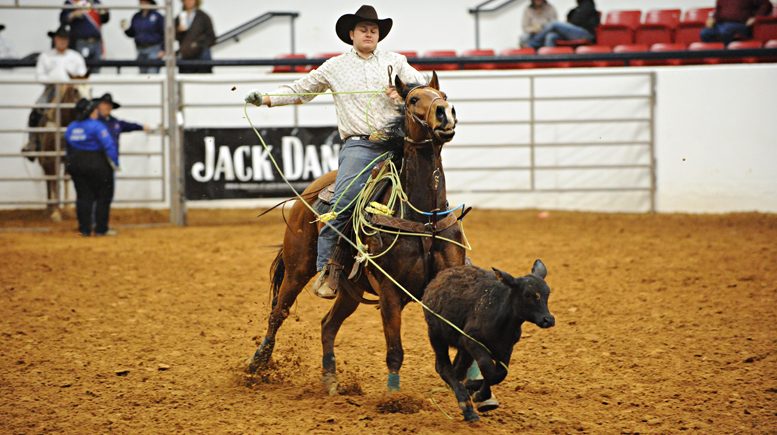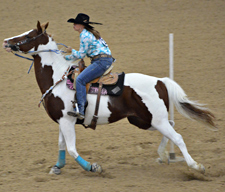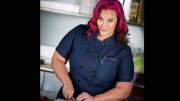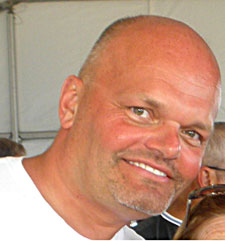The unique way of life of LGBTQ Cowboys and Cowgirls
By: Paul P. Jesep/TRT Contributor—
You’ve probably never heard of the International Gay Rodeo Association, at least not in the Northeast. Perhaps you know very little about cowboys and cowgirls who happen to be LGBTQ. If so, take the time to get to know them and you’ll enter a special world.
It’s a place where integrity, neighborliness, individualism, and how you play the game matters, not wealth, degrees, social status, or whether you’re on the “A list.”
“We’re different from a lot of organizations,” said Bruce Gros, IGRA president. “We give a lot of money back to the community. It’s rodeo with a purpose.”
Depending on the chapter, there’s also volunteer work, sometimes not having anything to do with issues specific to the LGBTQ community.
IGRA promotes the “humane treatment of animals in their housing, feeding, training, exercising and competition,” according to its website. Rodeo competitions are a test of skill, speed and endurance. They include bull riding, drag racing, calf roping, barrel racing, and steer wrestling.
Participants are competitive, unpretentious men and women connected to the earth, who purposefully choose one another as family, and have a passionate love for the demanding sport of rodeo. Everyone involved in the competitions wants to win, yet participants or volunteers making the rodeos reality are measured first by the depth and quality of their character.
In 1975, Phil Ragsdale conceived of the gay rodeo as a means to support a community-based “Senior Citizens Thanksgiving Feed.” A year later, the first official gay rodeo occurred in Reno, Nev. Today, the 5,000-member non-profit IGRA has 25 local associations throughout North America. Multiple competitions are held during the year culminating in the annual World Gay Rodeo Finals.
Gros, who grew up in Tulsa, OK, sees a “spiritual connection for many people involved with rodeo. They are in tune with the rhythms of nature. Animals become part of the family. There is a love for the outdoors, an earthiness.” It helps drive what Gros called “cowboy codes” of “being forthright, giving value for labor, and dealing directly and honestly” with one another.
The cowboy and cowgirl code includes a hospitality where everyone is welcome including straight folks and transgender people.
“IGRA is open to everyone,” Gros noted. “We don’t care who you are. All that matters is you want to be part of what we do, with a passion to have fun while giving back to the community.”
IGRA chapters take on a variety of volunteer projects, from spending time with autistic children, to adopting a park, to raising funds for cancer support services and research, to staffing homeless shelters and facilities that work with LGBTQ youth.
IGRA’s “Royalty” program and its philanthropic foundation also play a key role in helping raise money. IGRA Royalty is composed of 10 men and women who perform in drag shows, horsemanship events, and public presentation and entertainment activities. They raise awareness about their code, LGBTQ rodeo history, and the association’s various charitable initiatives. Members of the Royalty program typically dress in “western wear,” a style rooted in the Old West of the 19th century that can be formal or informal. Outfits can consist of a denim jacket with leather fringes, or jeans, t-shirt, and big-brimmed, high-crowned hat, or boots, denim jacket, and fancy dress shirt.
Patrick Hunter, a Boston native and president of the Atlantic chapter of IGRA, said he values the camaraderie of rodeo lifestyle.
“Being a cowboy or cowgirl means a willingness to get out of bed at 3 a.m. to help a buddy get out of a ditch,” said Hunter. “It’s a connection with other people through volunteerism, working together to help one another, to be a collective group.”
According to Hunter, IGRA is “breaking stereotypes. It’s moving beyond them to show rodeo is another sport.” Hunter added that he didn’t know how to ride bulls or western dance until joining the IGRA. (Note: Western dance has many forms and includes the polka, square dance, the promenade, and the 10-step. It is set to country-western music).
“You don’t have to be a professional,” he said. Anyone thinking about participating, “shouldn’t be intimidated. We’ll take care of you, if you want to compete. Don’t be scared.”
Hunter further explained that the rodeo family is extremely important “because life isn’t easy. Yet as individuals you have the power to change injustice. You can determine how the world changes, even if the changes are small.”
IGRA is helping to change the world by being a safe haven for those needing a place to be accepted and by leading through examples of kind acts and by members being themselves and living the cowboy and cowgirl code. Even members of the transgender community are welcomed with open arms and non-judgement.
“As a transgender man,” shared Travis Gardner, a California native who calls Montana home, “IGRA is not full of drama. Gender and sexuality doesn’t matter. It’s a place of acceptance.”
Gardner said, “The LGBT community is not always as accepting as we’d like to think. [Collectively as LGBTQ people] we are out and vocal, but when it comes [specifically] to transgender men and women, we are left out. Gender is not as binary as society makes it.
“[Transgender people] want to live our lives and feel safe. IGRA has given many people a place to call home, a place to call family without a set of rules of what family is. You define family with passion and interconnectivity. My safe place is the rodeo.”
To others, the cowboy lifestyle means living according a code of civility, honesty, and fraternity.
“Our community needs people who care. I don’t talk about the cowboy code. I live it,” said Wade Earp, a Texan with a distinguished western lineage and the winner of dozens of competitions. In 2015, he was inducted into IGRA’s Hall of Fame.
“We are athletes,” Earp said, “and the animals we love are athletes. You have a relationship and a bond with them. You ride your horse as if dancing. You work as a team. You become one.”
Char Duran, an active member of the IGRA’s Colorado chapter, averages about four competitions a year showing her skills in calf roping and bull and steer riding.
“Rodeo wasn’t part of my childhood,” she said. “I grew up a military brat spending time in Europe and throughout the states. My grandfather was a professional bullfighter before coming to the States from Mexico. We used to play in the backyard. It may have planted a seed about connecting with the earth and animals.”
She attended her first IGRA event more than 20 years ago as a spectator. She immediately realized IGRA enthusiastically encourages women to compete, which is often in sharp contrast to straight rodeo.
It wasn’t long thereafter that she was volunteering and developing a deeper bond with the land and its animals through volunteering and eventually as a competitor.
“Rodeo is about skill and how well you control your performance in the moment. The competition is within in yourself,” she said. “I control how well I ride and perform.” This is a sport requiring focus, discipline, determination, and respect for the animals.
Rodeo also has given Char a joy positively and profoundly impacting everything in her life and how she sees the world.
“It’s an amazing rush,” she laughs. “My girlfriend of six years would be happier if I collected stamps, but she loves, supports, and puts up with me.”
Although Char doesn’t identify as a role model, she does acknowledge she and other women are setting an example not to be afraid to try.
“Don’t be scared,” she said. “You may not [always be] successful, but it is a gift to have an opportunity to make an effort and be courageous.”
Char added rhetorically, “Who says a woman can’t be a bull rider, construction worker, or anything else? Find what you love and go for it. Think about what will go right and not what may go wrong.”
Independent of the fun, sportsmanship, and genuine sense of family, there is a very serious element to IGRA Char underscored several times.
“I’m so fortunate I found this family. It’s very important IGRA continues to reach out to places where there are isolated farm kids,” said Char. “IGRA is here for them, helping them realize they’re not alone and there is a family waiting for them who will love and accept them. There are many rural communities and too many isolated kids. IGRA as part of its mission tries to let them know there is a family waiting for them.”








